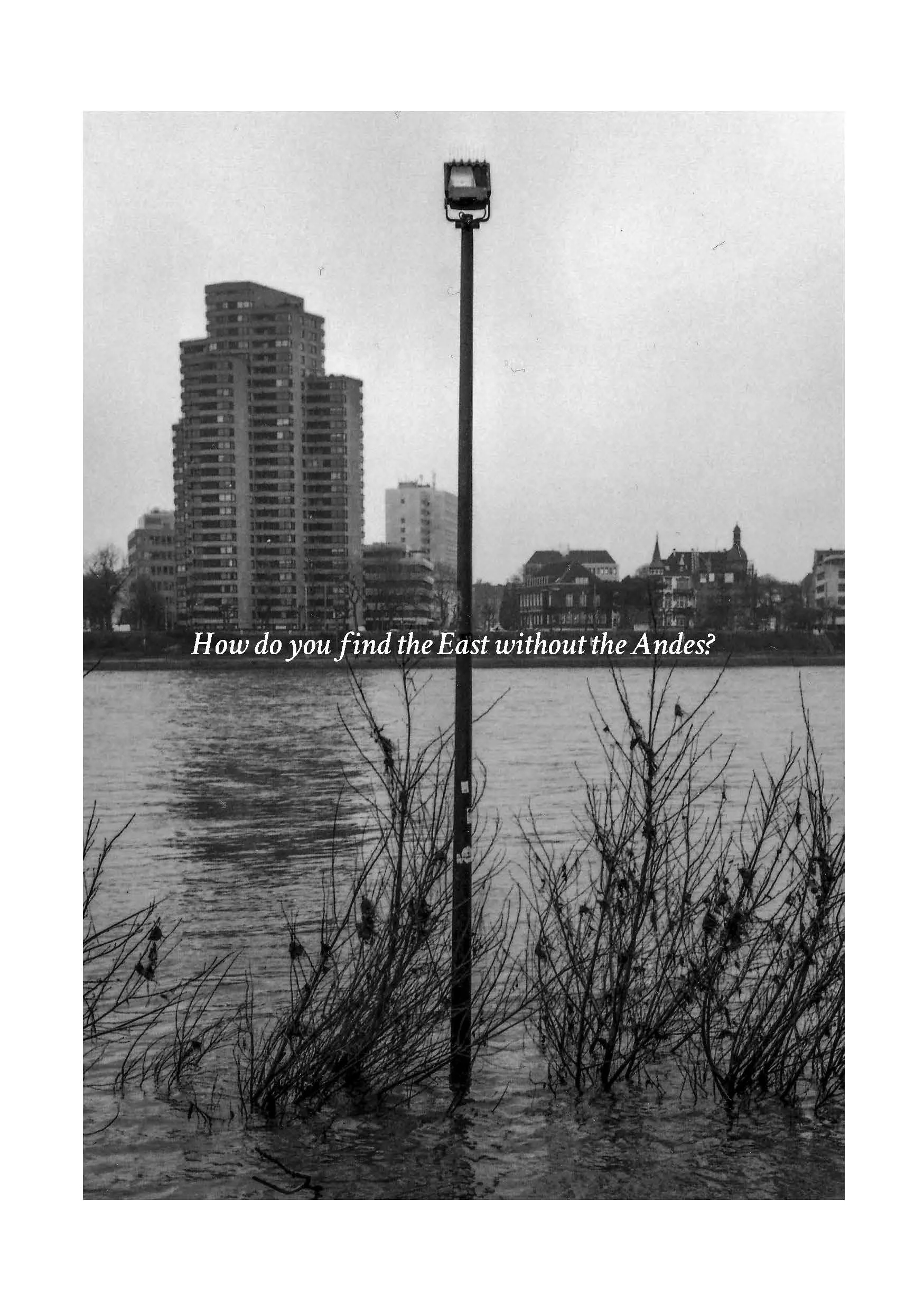
How do you find the East without the Andes? (2022)
Since I arrived in Germany at the end of 2020 a feeling of newness has taken over me. Despite this feeling, a lot of things seemed familiar, maybe it being the home country of my wife immediately creates an unspoken connection. Or maybe there’s more familiarity in the strangeness of the culture and the landscape than we think.
The process of migration confronts oneself constantly with our background and the foreign new place that now we call home. It forces the immigrant to live in a state of translation, not only referring to language but also related to the landscape that now they inhabit. As Barthes said in his lecture series “How to live together”: for the other’s work to pass on me, I have to define it as written for me, I have to deform it to make it other by force of love. That's the state of translation, recognizing oneself in the strangeness of the new landscape and interchanging roles with it. Now it's the landscape, the country, the culture, the others the ones that are foreigners. Yet I cannot avoid the feeling that it was waiting for me all along. How do you find the East without the Andes? researches migration, belonging, the sense of self, and the ability to recognize the other as said other. I want to confection a system of visual translation of what makes me a foreigner and what allows me to nevertheless call this place home

















